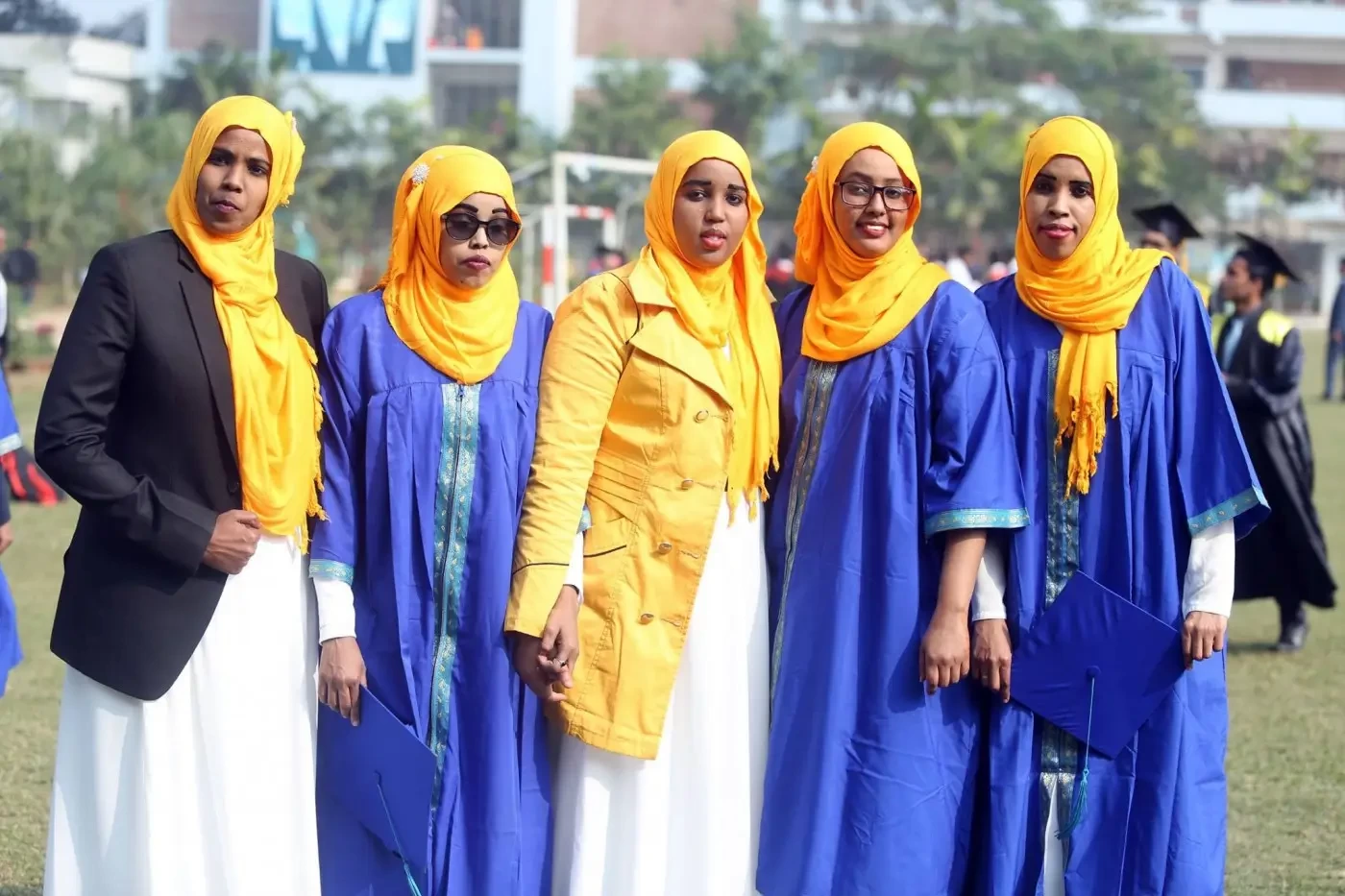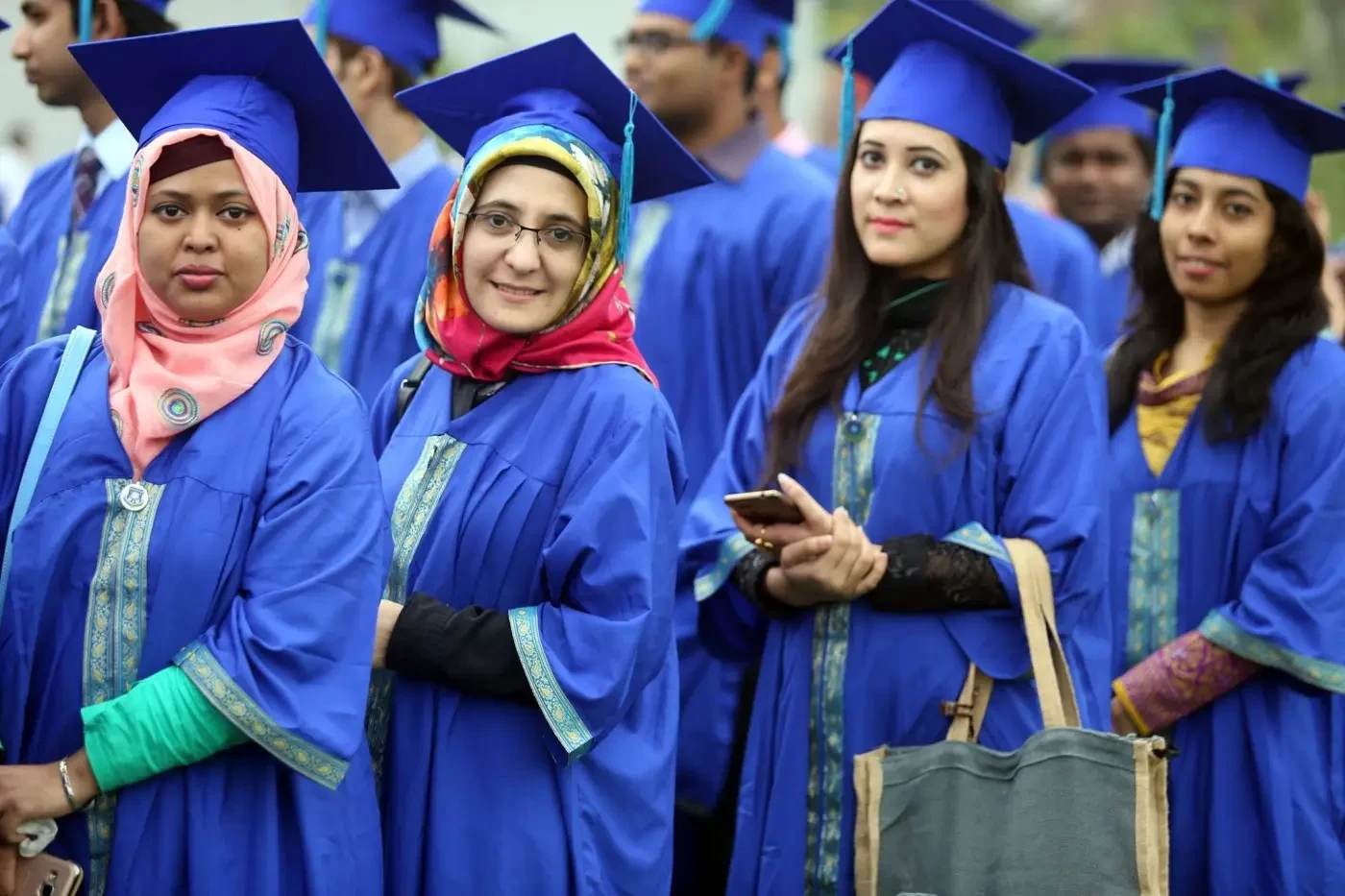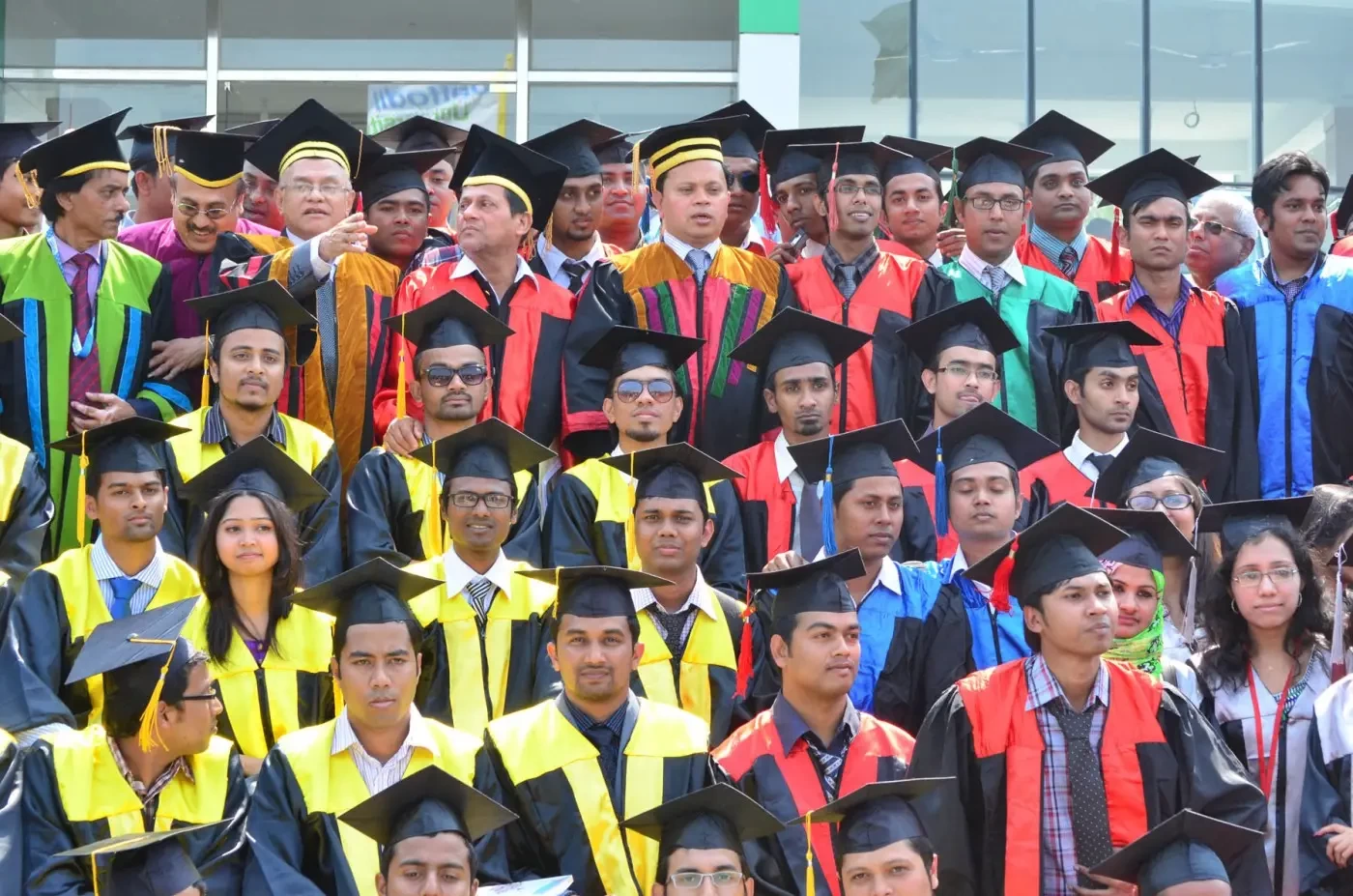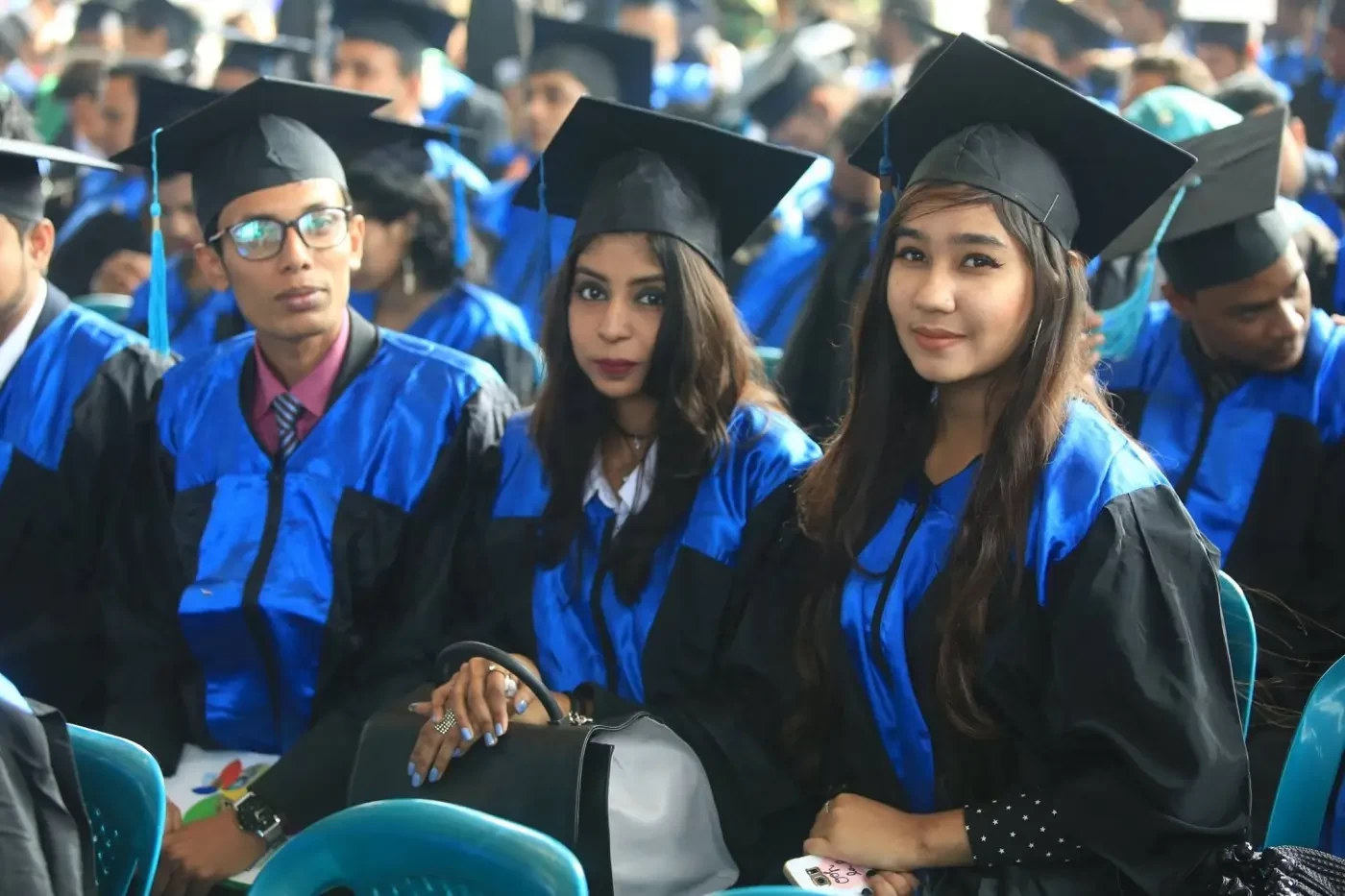Speeches
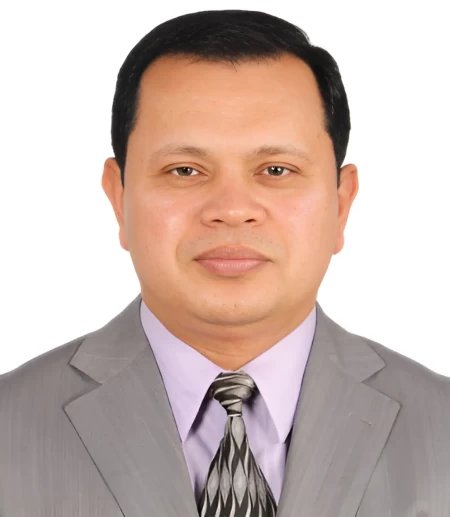
Md. Sabur Khan
Chairman, Board of Governors
Daffodil International University
Speech of the Chairman (BoT)

Bismillahir Rahmanir Rahim
His Excellency Honorable President, Government of the People’s Republic of Bangladesh and Chancellor of the University, Honorable Education Minister, Ministry of Education, Government of the People’s Republic of Bangladesh, Honorable Convocation Speaker Ms. Hua Du, Country Director, Asian Development Bank, Bangladesh Resident Mission, Honorable Vice Chancellor, Professor Aminul Islam, Honorable Pro-vice Chancellor, Members of Academic Council and Board of Governors, Deans, Respected Faculties, Guardians, Distinguished Guests, well-wishers and above all the successful students. Welcome to the first Convocation.
Assalamu Alaikum
I am delighted to have this opportunity to direct my welcome and congratulations to today's graduates. We are extremely proud of your accomplishments and wish you well as you assume new and different challenges. We recognize that as DIU graduates you will be admirably placed to further your contribution to society. Not only have you mastered the specific subject matter, but you have also demonstrated your ability to learn independently and asynchronously, two of the indispensable skills that are increasingly crucial for meeting the lifelong learning needs of today's, and tomorrow's citizen.
Ladies and Gentlemen
I consider my role as Chairman. BOG is essentially twofold: on the one hand, to gain institutional and board support for a strategic vision that is forward-looking, yet realistic, demanding yet realizable. Equally important, however, is what I consider to be my other primary role: providing support to maintain an institutional climate and culture that enables each and every staff member to work to his or her capacity, in an environment that is both personally and collectively rewarding.
The key players in any university are undoubtedly its faculty, and while this is also the case at Daffodil International University, one cannot overemphasize the role that individual professionals and support staff play in the successful development and delivery of our courses and programs. Just as today's graduates have depended on extensive support from their families and, in many cases from their employers especially in the case of MBA, so too is Daffodil International University's success the result of a tremendous team effort, the magnitude of which I believe can only be understood if you are either a Daffodil International learner or a staff member.
I emphasize this fact certainly because credit needs to be given where it is due, but also because our ability to maximize our collective potential has become increasingly important. Daffodil International University, as I like to say, is not just about education; it is equally about service. In a highly competitive environment, Daffodil International must continue to position itself not just on the academic merit of its courses and programs, important as these are, but equally on its reputation for service excellence.
I must verbalize the initiative and support of the Honorable Prime Minister Begum Khaleda Zia and her Government during her tenure in 1991 for establishing Private University creating suitable the Private University Act 1992.
To achieve our mission since establishment we are confined to quality and genuine education and the highly competitive nature of our core education means that we must look further afield as we seek to benchmark ourselves and reposition this university for tomorrow.
The advancement of a university depends on its education curricula, faculties, physical infrastructure, technological infrastructure, and strong extra curricula activities are also highly significant. Their educational models, whether for the purpose of developing or delivering content or for providing learner support services, rest on state-of-the-art technological infrastructures, often the result of strategic alliances with related industry partners. I am not, of course, advocating that Daffodil International University adopt a private sector model. But we moving fast and adopting the relevant technology, facilities, and panel of faculties thus can continue our pace and uphold the success and reputation that we achieved a few days earlier by the evaluation committee of the Ministry of Education.
Remember, however, that you are responsible for exploring and choosing from diverse combinations of opportunities that will contribute to your educational experience: courses, on- and off-campus study internships, collaborative interaction with the faculties, sports, clubs, and extra curricula activities.
Dear Graduating Students
This is the time is the starting point for any dream or aspiration. It is a compendium of the people, resources, and opportunities that make DIU an innovative challenging, and exciting place to begin building and shaping a student’s life.
My very personal views in regard to the success in professional life and characterization of the winner after entering into the job:
While a winner always has an involvement instead a loser always has an excuse.
The Winner says, "Let me do it for you" apart the loser says, "That is not my job".
The Winner finds an answer for every problem whereas the Loser finds a problem for every answer.
The comments of the Winner in case of any tough job, "It may be difficult but it is possible" on the other hand the loser says, "It may be possible but it is too difficult".
A winner believes in commitments instead a loser does promise.
In my view, those are the basic difference in thinking, strategy, goal setup, and achieving the target of a successful person and a less successful person.
Ladies and Gentlemen
This notwithstanding, there is no doubt in my mind that Daffodil International University's future depends heavily on a dramatic increase in its reputation for mission-critical objectives. While we are recognized as a quality education provider, the continuation of the reputation is part of our mission-critical objective profile.
Where, then, must our focus be if we are to assure Daffodil International University's future, a future that requires continued significant growth and recognition as one of the top ten private universities?
DIU focuses on the demand-based program revealing and emphasizing the priority to introduce those programs at the university. We have yet to work hard and continue the effort to establish the university in a stable position and keep the pace of development at the same rate. Our mission is to find our university as a role model for the private university and ensure our student's possible best future. I believe we will find some leaders for different areas of our professional life from our graduates.
In the end, I am once again thanking our Honorable Chancellor, our distinguished guests, guardians, loving graduating students, faculties, and staff for making this day successful.
Congratulations and best wishes.
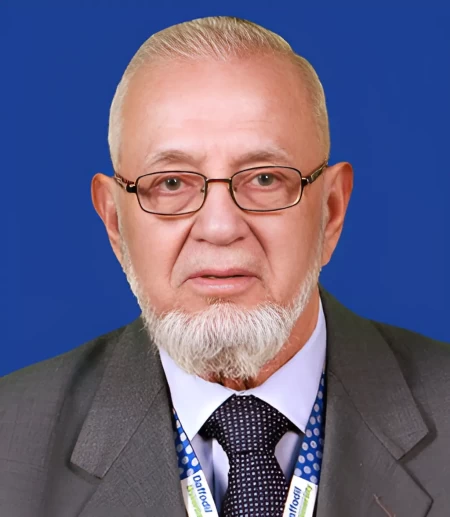
Professor Dr. Aminul Islam
Vice Chancellor
Daffodil International University
Speech of the VC

Bismillahir Rahmanir Rahim
Your Excellency Professor Dr. Iajuddin Ahmed, Hon’ble President of the People’s Republic of Bangladesh and Chancellor of Daffodil International University, Dr. M. Osman Farruk MP. Hon’ble Education Minister, The Convocation Speaker, Dr. Hua Du, Country Director, Asian Development Bank, Bangladesh Resident Mission, Mr. Md. Sabur Khan, Chairman of the Board of Governors, Engineer Md. Shahrin Islam, Member of the Board of Governors, Chairman and Members of the University Grants Commission, Vice Chancellors of different Universities, Pro-Vice Chancellor, Dean, Faculty Members and non-teaching colleagues of DIU, Proud parents and Guardians, Friends from electronic and print media, distinguished guests and dear graduating students
Assalamu Alaikum
I am extremely pleased to welcome you all to this solemn ceremony of the First Convocation of Daffodil International University.
We are really happy and highly encouraged to have the Honorable President and respectable Education Minister among us on this great day. I am thankful to Dr. Hua Du, Country Director of the Asian Development Bank for delivering the Convocation speech. It is particularly gratifying that Your Excellency – a former Hall-mate in Salimullah Muslim Hall, Department-mate in Soil Science, University of Dhaka, and colleague in the same Department from 1950 to 1990 – should, as Chancellor, be presiding over our First Convocation.
We are indeed grateful to your Excellency for the sustained interest you have been taking in the growth and development of university education in Bangladesh.
Respected Guests
Education is indispensable and of vital importance for the development of a country, and the objective of higher education is primarily to prepare an individual as a knowledgeable skilled person who can apply his knowledge for our socio-economic development and provide leadership in a required sector. “In an era of rapid technological progress and international economic integration, an educated, adaptable workforce enables countries to prosper. The reverse is also true: countries without such a workforce are liable to be left behind and shut out of this prosperity.” (The World Bank,1995)
The unprecedented advancement in knowledge and ideas, such as the Theory of Relativity and Quantum Mechanics, remarkable inventions, such as transistors, microchips, etc, and creative innovations like an interpretation of the Structure of DNA in the field of science and technology in the last century coupled with the phenomena of globalization, diversity, new techniques of improved teaching by using multimedia, internet, etc. and higher expectations of the young people have transformed the university education of Bangladesh into a challenging one. DIU, established in January 2002 is fully aware of these and is committed to guiding and educating students as individuals so that they would easily realize their full career potential and enhance their levels of knowledge, skill, understanding, and ability. DIU does it in an environment that reflects our tradition of personal service, commitment to innovative technology-enriched education, and dynamic learning relationships with the community, employers, and society. The mission of the university is to foster a national development process through the creation of an excellent institution of higher education that is responsive to society’s needs and is able to develop leaders with vision, efficient managers to run industries and business farms profitably, quality teachers to deliver international comparable education to the students, good engineers to build appropriate infrastructure, sound doctors to fight against diseases, and able agricultural scientists to feed the growing nation.
Respected Colleagues
The most important criteria by which a University is judged by the outside world are its academic atmosphere, intellectual climate, and physical environment. It is a matter of some satisfaction for me to say that our university of ours has made uniformly good progress in all these fronts during the past four years, and one could perhaps say with some confidence that it has progressed in the right direction. Our classes began in March 2002 with 67 students under two faculties, namely the Faculty of Business and Economics and the Faculty of Science and Information Technology. The Faculty of Business & Economics presently provides education on Bachelor of Business Administration (BBA), B. Com. (Hons.), BA (Hons.) in English at the undergraduate level, and MA in English and Master of Business Administration (MBA) at the postgraduate level. The Faculty of Science & Information Technology has been offering programs in B. Sc. in Computing and Information System (CIS), B. Sc. in Computer Science and Engineering (CSE), B. Sc. in Computer Science (CS), B. Sc. in Electronics & Telecommunication Engineering (ETE) and B. Sc. in Textile Engineering at the undergraduate level and Master of Science (MS) in Management Information System (MIS) at the postgraduate level.
At present, the university has got 3800 students who study on four campuses that consist of a total floor space of 1.5 lac square feet. We have, in the meantime, purchased two pieces of land measuring three acres at Bashundhara, Dhaka, and the other at Gajaria, Munshigong for future expansion of DIU.
Ladies and Gentlemen
The demand for quality assurance has become a major concern in higher education today. Quality is not easy to define; it depends on the quality of system components (UNESCO, Paris, 1998), such as, a) Quality of Staff, b) Quality of Curricula, c) Quality of Teaching Methods, d) Quality of Students, e) Quality of Infrastructure, and f) Systematic assessment and regulation in conformity with the above criteria.
DIU provides a congenial academic atmosphere and quality teaching through a group (75 permanent and 25 part-time) of highly qualified, talented, competent, motivated, and dedicated teachers, efficient management by young and hardworking administrative officers, constant help and guidance by a homogenous and well-informed Board of Governors, well-planned teaching methods, adequate library and laboratory facilities, and well- designed internationally accepted course curricula, which are catered to the society’s needs and demand of international job market. The whole education system in DIU has been designed so that the students can respond efficiently and flexibly to the fast-changing demands of the market and economy. Moreover, the university has maintained such a cost structure that a student coming from the middle class would find affordable. Here the students can pay their fees in monthly installments and fifteen to sixteen percent meritorious and poor students enjoy tuition fee waiver.
Your Excellency
Research is a fundamental mission (Dakar, April 1997) and a major function of higher education. It is, therefore, essential that this potential be turned fully to account, not only for teaching purposes, but also in order to contribute to the areas of Science and Technology, Social and Human Sciences (Havana, Palermo, November 1996) for the advancement of knowledge, cultural development and fulfillment, and for solving the problems with which society is facing today. Research is needed for sustainable human development and for spreading ideas of peace, democracy, and protection of the environment (Havana, Dakar, Tokyo) This is the duty, responsibility, and function of higher education and its teaching personnel in particular.(UNESCO, Paris, 1998). Daffodil International University has established two research centers with the Deans of Faculties at the apex with an aim to encourage and facilitate research by the teachers and students. Two journals, namely, the DIU Journal of Business & Economics and the DIU Journal of Science and Information Technology, are published twice a year - once in July and the other in January.
Dear Graduating Students
You are going to receive certificates today, I congratulate you most warmly for having had the privilege of becoming members of this great seat of learning.
During your stay with us, we have tried to instill in you those virtues and values, which we hold very dear and which have been cherished at all ages by all civilized men and women in the world. We have tried to help you acquire an extent of knowledge, a breadth of mind, and a depth of character that may enable you to face the hard realities of life with courage, conviction, faith, and fortitude. The success of our attempts will depend not so much on the victories you achieve, but on how honorably and skillfully you fight the battle of life. In that battle, your technical ability, intellectual capacity, and moral integrity will be your real strength. How far we have been able to equip you with these, it is for the world to judge; but, we confidently hope that by your conduct, character, and capacity you will prove yourselves worthy of the trust reposed on you by your Alma Mater. Whether you are a scientist, a business specialist, or an educator, keep the ideal of national service in the forefront of your mind. Respect the dignity of man and do not flinch or falter to make sacrifices for the cause that is right and just. Have pride in your performance but modesty in your bearing. Remember that education is a life-long process. Compared to what life has to teach, you have learned little from us. But, if you have learned how to learn more, you have learned something important. (Ghani, 1964)
Today the nation is in a critical stage of its economic development. Political independence will have no meaning unless we can free ourselves from poverty, hunger, disease, and ignorance. This is a gigantic task, but the challenge has to be met. And, this can be met if you- every one of you, young men and women- apply yourselves to it with all your heart and soul and body. Remember what I have said before. Have a vision but a mission too. Wed your idealism with realism and your theory with practice.
Thank you all.
Allah Hafez.
